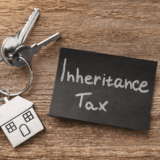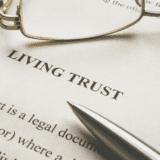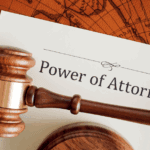Dealing with debt is never easy, and if you’re considering bankruptcy, one of your biggest concerns may be: Does bankruptcy affect personal assets? You’re likely wondering what you might lose if you file and how much of your property can be protected. Let’s walk through what’s at risk and how the bankruptcy process works.
Does bankruptcy affect personal assets? It can—but the answer depends on your specific situation, the type of bankruptcy you file, and the protections available under the law. Understanding your options is empowering, especially when you’re facing financial uncertainty. The more you know, the more confident you can feel about making the right decision for your future.
Bankruptcy and Your Assets: What You Need to Know
Are you thinking about filing for bankruptcy? It’s essential to understand how this legal process works—including how it might impact what you own. Bankruptcy is designed to provide debt relief, but it also has serious implications for your assets.
One of the most important questions people have is: what happens to your personal property if you file? Can you keep your home, your car, or your savings? The answer depends on the type of bankruptcy you choose and the protections available under state and federal exemption laws.
Understanding the Basics of Bankruptcy
Bankruptcy is a legal process designed to help individuals or businesses that can’t repay their debts. It offers a path toward financial recovery, but it also comes with specific rules, eligibility requirements, and long-term implications.
In the U.S., the two most common types of personal bankruptcy are Chapter 7 and Chapter 13:
Chapter 7, often referred to as liquidation bankruptcy, involves selling certain non-exempt assets to pay off creditors. It’s typically suited for individuals with limited income and few assets.
Chapter 13 is known as reorganization bankruptcy. Instead of liquidating property, it allows you to create a court-approved repayment plan—usually lasting three to five years—so you can catch up on debts while keeping most of your assets. (Learn more in our dedicated section on Chapter 13.)
The Bankruptcy Filing Process
Filing for bankruptcy involves more than just declaring you’re unable to pay. It’s a formal legal proceeding that requires detailed documentation. You’ll need to provide a complete picture of your financial situation, including:
- A list of all debts and creditors
- A breakdown of income and monthly expenses
- A list of assets and property
- Tax returns and recent pay stubs
For Chapter 7, you must also pass a means test to determine if your income qualifies you for this form of relief. This involves completing Form 122A-2, which compares your income to the median income in your state and evaluates your disposable income.
Once filed, an automatic stay goes into effect, which temporarily stops most collection efforts, including phone calls, wage garnishments, and lawsuits. From there, the bankruptcy court oversees your case, working with a trustee and your attorney to either discharge debts or put your repayment plan into motion.
Exempt vs. Non-Exempt Assets: What You Can Keep in Bankruptcy
A key part of understanding how bankruptcy affects your property is knowing the difference between exempt and non-exempt assets. This distinction determines what you can keep and what may be used to repay your debts.
Exempt Assets
Exempt assets are protected by law and cannot be taken by the bankruptcy court to satisfy creditors. These exemptions vary by state, but they often include:
A certain amount of equity in your primary residence
A vehicle, up to a specific value
Essential household goods, appliances, and furniture
Tools of your trade (if needed for your job)
Most retirement accounts and pensions
Basic clothing and personal items
The purpose of these exemptions is to ensure that you’re not stripped of the things you need to maintain a basic standard of living and rebuild after bankruptcy.
Non-Exempt Assets
Non-exempt assets are those that may be sold by the bankruptcy trustee to help pay off your creditors. These can include:
Second homes or vacation properties
Valuable jewelry or collectibles
Investment accounts
High-end electronics or luxury items
Cash beyond a certain protected amount
However, just because something is non-exempt doesn’t always mean you’ll lose it—especially in Chapter 13 bankruptcy, where you may keep your property while repaying part of your debt through a structured plan.
How Different Types of Bankruptcy Impact Your Assets
Let’s look at how Chapter 7 and Chapter 13 bankruptcy treat your personal assets. Knowing the differences here can help you decide which path is right for you and protect yourself from personal liability in the process.
Chapter 7: Liquidation and Your Property
In a Chapter 7 bankruptcy, a court-appointed trustee reviews your assets and can sell your non-exempt assets. The money is then used to pay off your creditors. Here’s what you can typically expect:
- You’ll need to provide a detailed list of all your assets and their value.
- The trustee will identify which assets are exempt and which are not.
- Non-exempt assets will be sold, and the proceeds distributed to creditors.
- In most cases, you get to keep your exempt assets.
What assets are exempt in Chapter 7 bankruptcy cases? Exempt property can include the car you need, and the tools that you need for your trade.
For a Chapter 7 bankruptcy filing, there are some important bankruptcy exemptions. These exemptions are the laws listing assets that are safe from creditors.
Filing a Chapter 7 business bankruptcy generally means closing the business. It’s also a good idea to check your local regulations when making this type of decision.
Chapter 13: Repayment Plans and Asset Retention
Chapter 13 bankruptcy works differently. Instead of selling assets, you propose a repayment plan to pay off your debts over time. The bankruptcy code dictates a payment schedule depending on the debt load. As long as you stick to the plan, you get to keep most of your assets.
With a Chapter 13 bankruptcy, the debtor gets to retain possession of their home; however, the debtor must make the payments.
Here’s what the process generally involves:
- You’ll create a plan to repay all or part of your debts over three to five years.
- The plan must be approved by the bankruptcy court.
- You’ll make regular payments to a trustee, who then distributes the money to your creditors.
- As long as you follow the repayment plan, you get to keep your assets.
This option is appealing if you have assets you want to protect. However, it requires a steady income to make the plan payments. Chapter 13 bankruptcy involves a repayment plan for debts, often lasting 3-5 years.
Protecting Your Assets: Key Strategies
Regardless of which type of bankruptcy you choose, there are steps you can take to protect your assets. Strategic planning can help minimize the impact on your property and possessions.
Understanding State Exemption Laws
Exemption laws vary significantly from state to state. What’s protected in one state might not be in another. Take time to understand the bankruptcy exemptions that are specifically for you and the state you are in.
For example, some states have a “homestead exemption” that protects a certain amount of equity in your primary residence. Other states have different rules about protecting vehicles or personal property. Knowing these laws can guide your decisions about which assets to protect and how to structure your bankruptcy filing.
Planning and Timing Your Filing
The timing of your bankruptcy filing can also impact what assets are at risk.
- Some states have residency requirements that you must meet before you can claim their exemptions.
- Certain transactions made before filing bankruptcy can be “undone” by the trustee. This could include transferring assets to family members or paying off certain debts over others.
Proper planning and timing are important. They could greatly improve your ability to shield your assets.
Working with a Bankruptcy Attorney
One of the best ways to protect your assets during bankruptcy is to work with an experienced bankruptcy attorney.
- An attorney can help you understand the exemption laws in your state.
- They can help you develop a strategy to maximize your exemptions and protect as much property as possible.
- They can guide you through the bankruptcy process and represent you in court.
They can ensure you complete the steps correctly. Engaging counsel allows for more favorable financial decisions and avoid costly errors. An attorney provides you with proper debt relief, whether for a small business or something else.
The Long-Term Financial Implications of Bankruptcy
While bankruptcy offers immediate relief from overwhelming debt, it also has long-term financial consequences. A bankruptcy filing can remain on your credit report for seven to ten years, depending on the type filed. This can affect your ability to get loans, rent housing, or even secure certain jobs.
That said, bankruptcy also provides a clean slate—and many people start rebuilding their credit sooner than they expect. With consistent effort, you can regain financial stability by:
Creating and sticking to a realistic budget
Paying bills on time
Opening a secured credit card or small installment loan
Monitoring your credit and making steady progress
The road to financial recovery may take time, but it’s entirely possible. Bankruptcy is a reset, not an end.
Business Bankruptcy and Personal Assets
If you own a business, you might be wondering how business bankruptcy affects your personal assets. The answer depends on your business structure. It also depends on the actions you’ve taken. Business debts, like card debt, may impact the outcome.
Sole Proprietorships
In a sole proprietorship, there’s no legal distinction between you and your business. This means your personal assets are at risk if your business incurs debts. Your business debts are essentially your personal debts. So, business debts that are not resolved may result in you needing bankruptcy work performed.
One thing that you can also do, is purchase liability insurance. Although this type of insurance does not protect all the sole proprietor’s assets, it can help cover costs for potential damages awarded in a lawsuit.
Corporations and LLCs
Corporations and Limited Liability Companies (LLCs) offer more protection for your personal assets. These business structures are legally separate from their owners. Your personal assets are typically shielded from business debts.
That said, there are exceptions:
- Personal Guarantees: If you signed a personal guarantee for a business loan or lease, you’re personally liable for that debt. This means creditors can come after your personal assets.
- Commingling Funds: If you’ve mixed personal and business funds, it can blur the line between your personal and business assets. This can make your personal assets more vulnerable in a business bankruptcy.
The SBRA and Small Business Bankruptcy
Small businesses now have another option to navigate the bankruptcy process. This option is called the Small Business Reorganization Act (SBRA), sometimes referred to as “Chapter 11 lite.”
Here are some features that it has:
- Streamlined process for small businesses to reorganize their debts.
- Faster confirmation of a reorganization plan.
- More flexibility in negotiating with creditors.
Understanding the Intersection of Business Bankruptcy and Personal Guarantees
For business owners, especially those with sole proprietorships, understanding the implications of personal guarantees is crucial. A personal guarantee means that you, as an individual, are liable for your business’s debts. This liability can extend to credit card debt and personal loans taken out for the business. When a business files for bankruptcy, creditors may pursue the guarantor’s personal assets to recover the debt. This is a significant risk, as it blurs the lines between business and personal liabilities.
When assessing your financial situation, consider whether you’ve signed any personal guarantees. Review loan agreements, leases, and other financial documents to identify potential liabilities. Understanding the extent of your personal exposure is the first step in protecting your assets during business bankruptcy.
Strategies for Protecting Personal Assets During Business Bankruptcy
Navigating the complexities of business bankruptcy requires a proactive approach to safeguard your personal assets. Consulting with a bankruptcy attorney is advisable to understand your options and develop a tailored strategy. Here are several key strategies to consider:
- Negotiate with Creditors: Explore options for debt settlement or repayment plans with creditors. Negotiating can reduce the overall debt and potentially avoid bankruptcy altogether.
- Leverage Business Structure: If operating as a sole proprietorship, consider restructuring as an LLC or corporation to create a legal separation between your business and personal assets.
- Maximize Exemptions: Understand your state’s exemption laws to protect assets like your home, vehicle, and retirement accounts.
Taking these steps can provide a solid foundation for protecting your personal financial well-being during challenging times.
Exploring Alternatives to Bankruptcy for Business Owners
Bankruptcy isn’t the only option for business owners facing financial challenges. In fact, several alternatives may offer relief while minimizing the negative effects on your credit and personal assets. Before deciding to file, consider these potential solutions:
Debt Consolidation: This involves combining multiple debts into a single loan—often with a lower interest rate—which simplifies payments and may reduce monthly costs.
Debt Settlement: With this approach, you negotiate with creditors to reduce the total amount owed. This usually requires a lump-sum payment and can be a quicker resolution if you have access to funds.
Repayment Plans: Working with a credit counseling agency, you can create a structured plan to gradually pay off your debts over time, without the need for bankruptcy.
Each of these alternatives comes with its own pros and cons. Evaluating them carefully—and with the help of a financial or legal professional—can help you make an informed decision.
Conclusion
Understanding how bankruptcy affects personal assets is vital before you take that plunge. From grasping exempt versus non-exempt assets to strategically organizing your bankruptcy filing, remember to do what is right for your business’ and personal circumstance. With careful insight and robust planning, navigating the bankruptcy process gives people in serious debt more peace of mind as you journey toward an eventually debt-free state, by removing some personal liability to secure solid steps and improve your financial situation.
FAQs Related to Does Bankruptcy Affect Personal Assets?
Will I lose everything if I file for bankruptcy?
No. Bankruptcy laws are designed to give you a fresh start—not to leave you with nothing. Most people who file are able to keep essential personal property like clothing, household items, and even their home or car, depending on the exemptions available in their state.
What’s the difference between exempt and non-exempt assets?
Exempt assets are protected by law and cannot be taken during bankruptcy. These often include things like a certain amount of home equity, a personal vehicle, and retirement accounts. Non-exempt assets, such as second homes, luxury items, or investment accounts, may be sold to repay creditors—particularly in Chapter 7 cases.
Can I keep my home if I file for bankruptcy?
It depends on how much equity you have and which type of bankruptcy you file. If your home equity falls within your state’s exemption limit, you may be able to keep it in Chapter 7. In Chapter 13, you’re more likely to keep your home by including mortgage payments in your repayment plan.
Are retirement accounts safe in bankruptcy?
In most cases, yes. Qualified retirement accounts such as 401(k)s, IRAs, and pensions are generally protected from creditors in both Chapter 7 and Chapter 13 bankruptcy.
How do I know which of my assets are protected?
Asset protection depends on your state’s exemption laws and the type of bankruptcy you file. A bankruptcy attorney can help you review your property and determine what’s exempt—and what may be at risk—so you can make informed decisions.








